Protecting Our Elections
With our nation facing varied threats from adversaries at home and abroad, ensuring the safety and integrity of our elections has never been more important. With the latest research and analysis, NCITE hopes to equip election workers, policymakers, scholars, and concerned voters with the knowledge they need to protect the very foundation of our democracy.
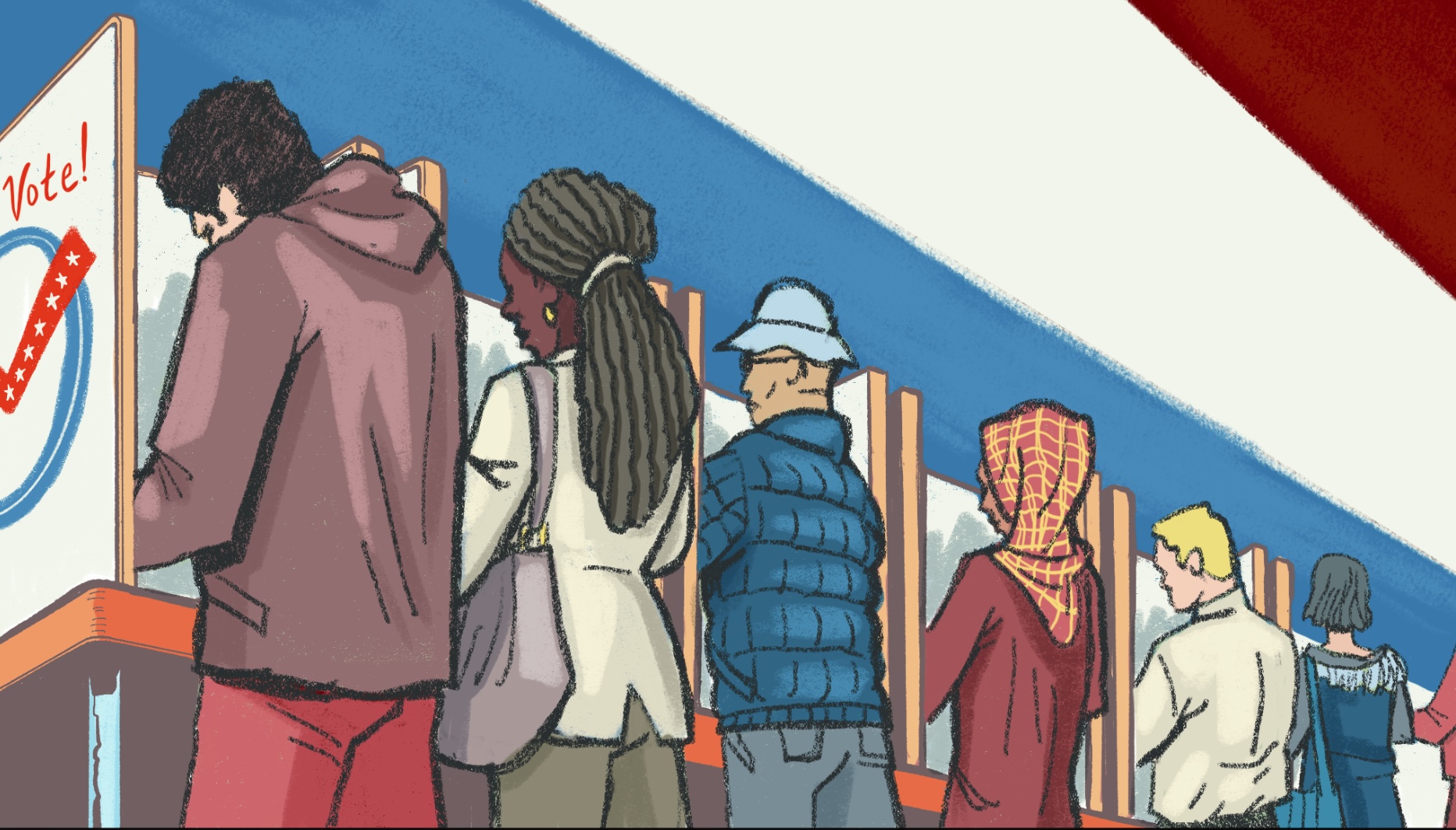
Below, learn more about NCITE's election-related research and find links to government resources on election security.
NCITE Experts
 |
Paul Gill, Ph.D. Paul Gill is a professor of security and crime science at University College London. He leads an NCITE research project that examines the link between conspiracy theories and violent extremism within the context of a U.S. election cycle. |
|
 |
Seamus Hughes Seamus Hughes is the senior research faculty and policy associate at NCITE. He is a leading expert on navigating federal court records through the Public Access to Court Electronic Records (PACER) system and has worked with leading journalists to track election-related threat cases. |
|
|
|
||
 |
Pete Simi, Ph.D Pete Simi is a professor in the Department of Sociology at Chapman University who has studied extremism for more than 25 years. He leads an NCITE research project that examines the disturbing rise in the number of threats against public officials – including election officials – in the U.S. Simi and his team, which includes NCITE's Seamus Hughes, are working to use this information to better understand the level of tolerance for political violence in the U.S. |
|
 |
Steven Windisch, Ph.D. Steven Windisch is an assistant professor of sociology and criminology at the University of Arkansas. In the coming year, he will lead an NCITE research project that will collect the personal experiences of election officials who have been the targets of violence to better shape policy. |
|
 |
|
ENVISION24 Panel on the Election as a Galvanizing Event
In this panel from NCITE's most recent annual conference, consortium researchers Bettina Rottweiler, Chris Bader, and Pete Simi discuss their research examining threats related to the election. Find links to individual slide presentations below.
- "Conspiracy Theories and Violent Extremism" | Bettina Rottweiler, University College London
- "Americans' Acceptance of Politically Motivated Violence" | Chris Bader, Chapman University
- "Tolerance for Violence Toward Public Servants" | Pete Simi, Chapman University
Fireside Chat with CISA Director Jen Easterly
On Oct. 8, NCITE hosted a discussion with Jen Easterly, director of the Cybersecurity and Infrastructure Security Agency (CISA) about election system security and CISA's role in evaluating and mitigating threats during the election season.
WEBINAR: Countering Extremism Around Elections
On Oct. 17, NCITE hosted a webinar with several researchers in the consortium to discuss the how and why of election-motivated violence. Panelists were Pete Simi, Paul Gill, Steven Windisch, and Isabelle van der Vegt.
NCITE Insights: Threats to Election Workers
On this episode of our podcast, NCITE Insights, Steven Windisch discusses his research interviewing election workers who have faced threats in the course of their work.
NCITE Research
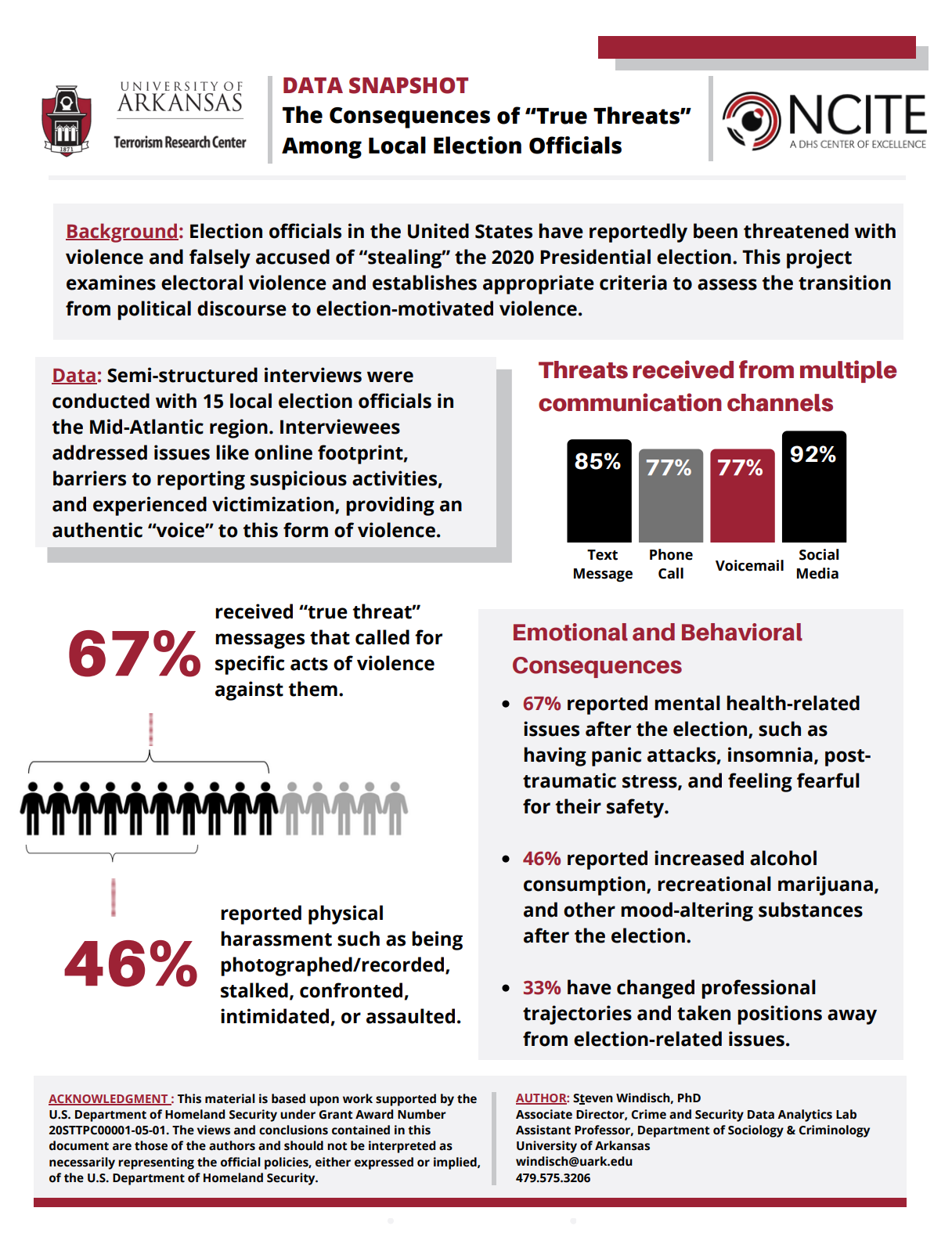 |
NCITE Report: The Consequences of "True Threats" Among Local Election Officials This handout identifies the effects of threats and physical harassment on election officials. Read the report. |
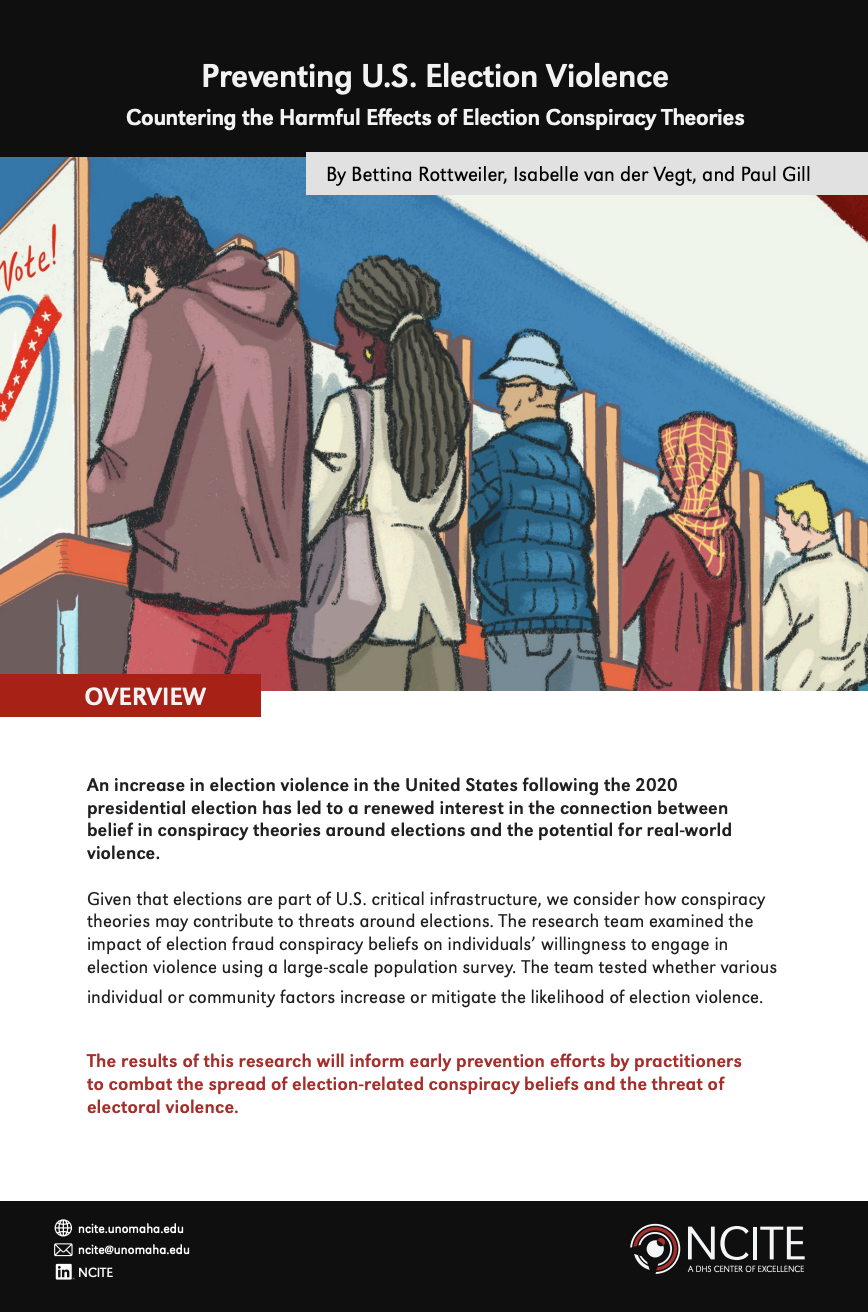 |
NCITE Report: Preventing U.S. Election Violence – Countering the Harmful Effects of Election Conspiracy Theories This handout outlines the results of the research team's survey, which identified risk and protective factors for willingness to engage in election-motivated violence. Read the report.
|
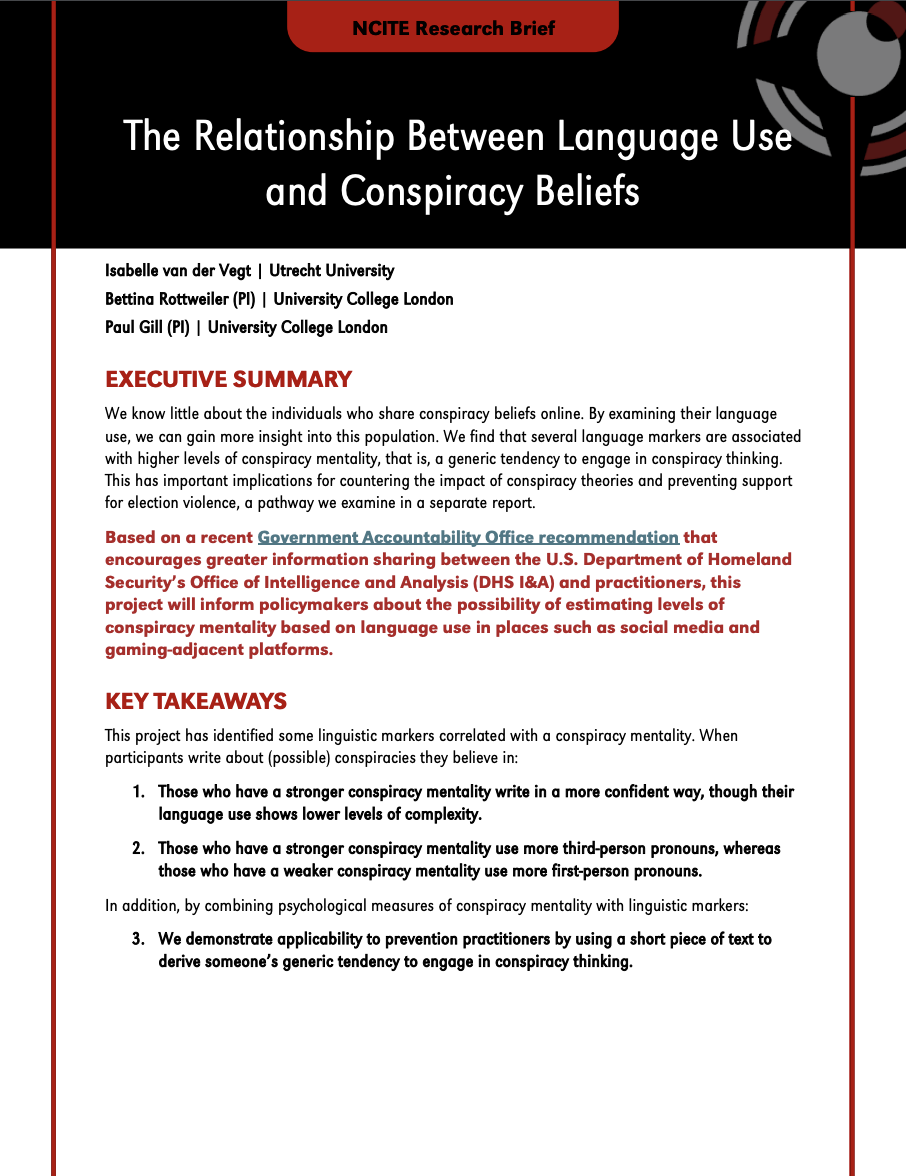 |
NCITE Report: The Relationship Between Language Use and Conspiracy Beliefs This research brief discusses commonalities in language used by those with conspiracy mentality. Read the report.
|
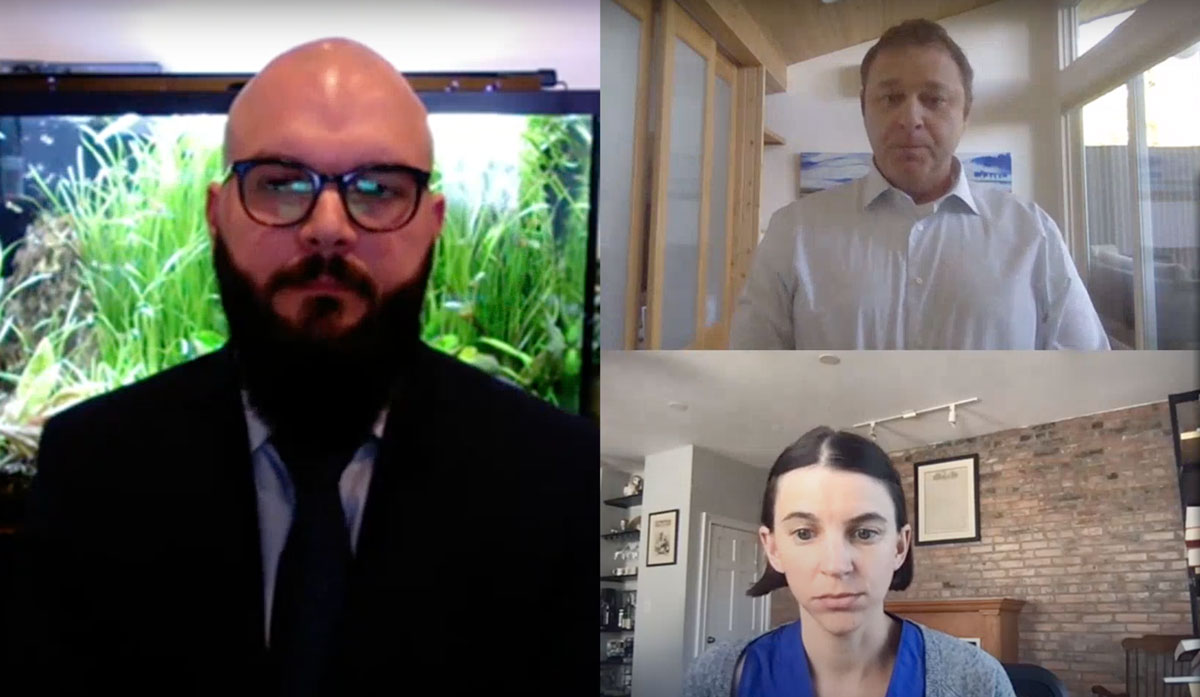 |
NCITE Panel: Elections and the Threat of Violence In September 2022, NCITE hosted a virtual panel discussion with consortium experts Pete Simi, Steven Windisch, and Iris Malone discussing the ongoing threat of election-related violence. Watch a recording and read a recap. |
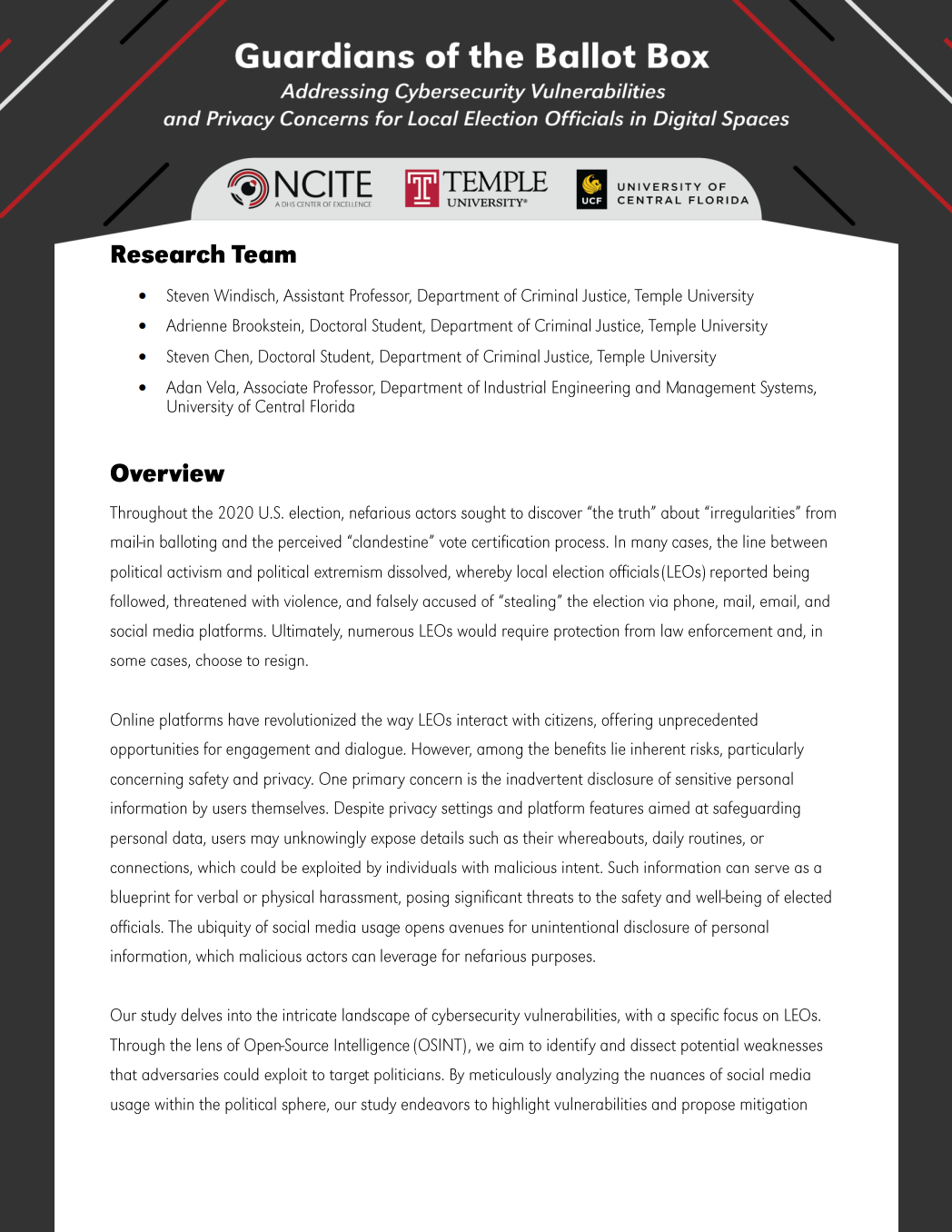 |
NCITE Report: Protecting the Guardians of the Ballot Box Local election officials across the country are facing an onslaught of harrassment and violent threats – making the protection of their personal information all the more important. In this report, NCITE researchers explain the ease with which personal information can be found online and outline recommendations for safeguarding it. Read the full report. |
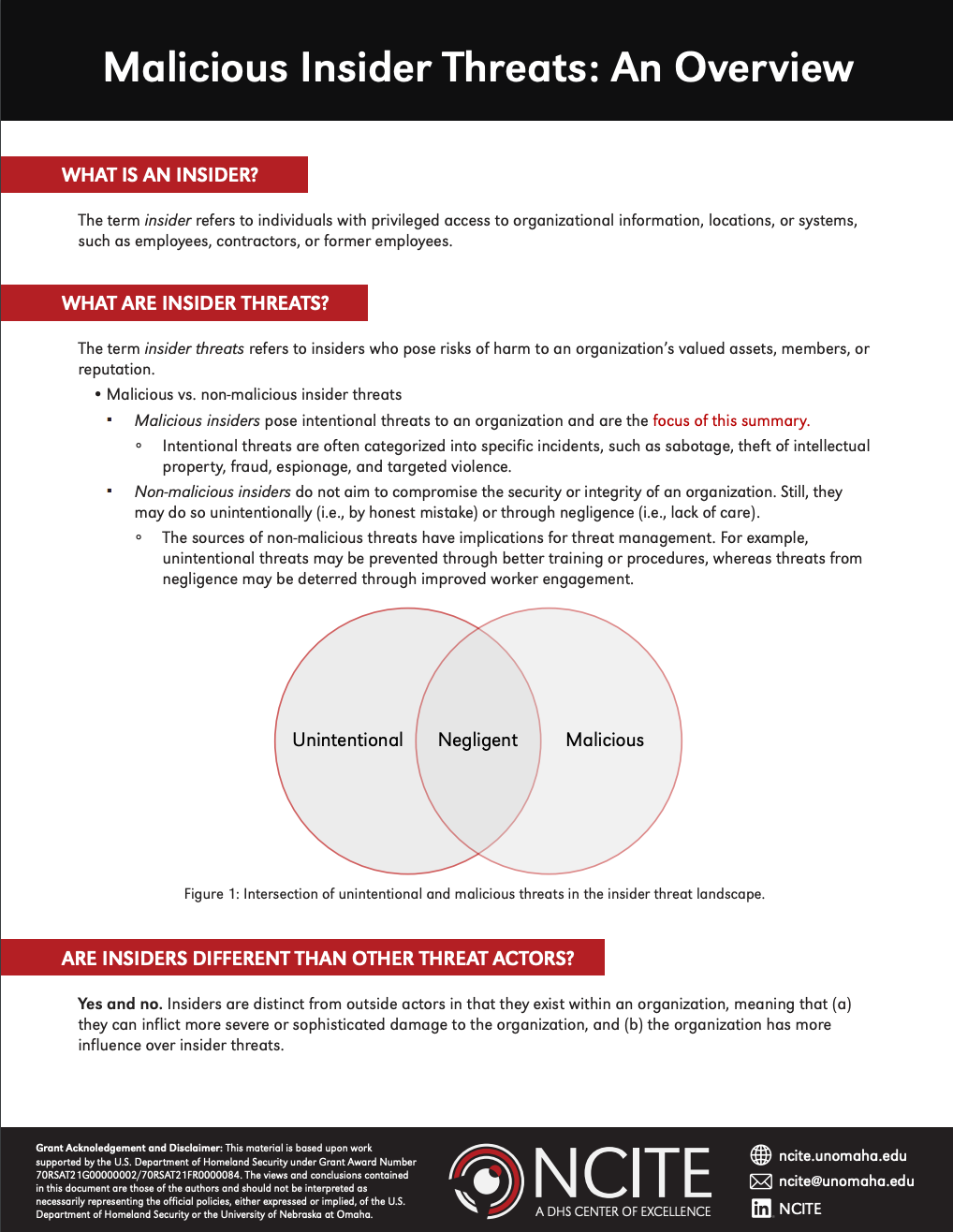 |
NCITE Report: Understanding Insider Threats Authorities have identified insider threats, or threats from individuals within organizations, as a significant risk during elections. In this report, NCITE researchers explain what constitutes an insider threat and how to manage them. Read the report. |
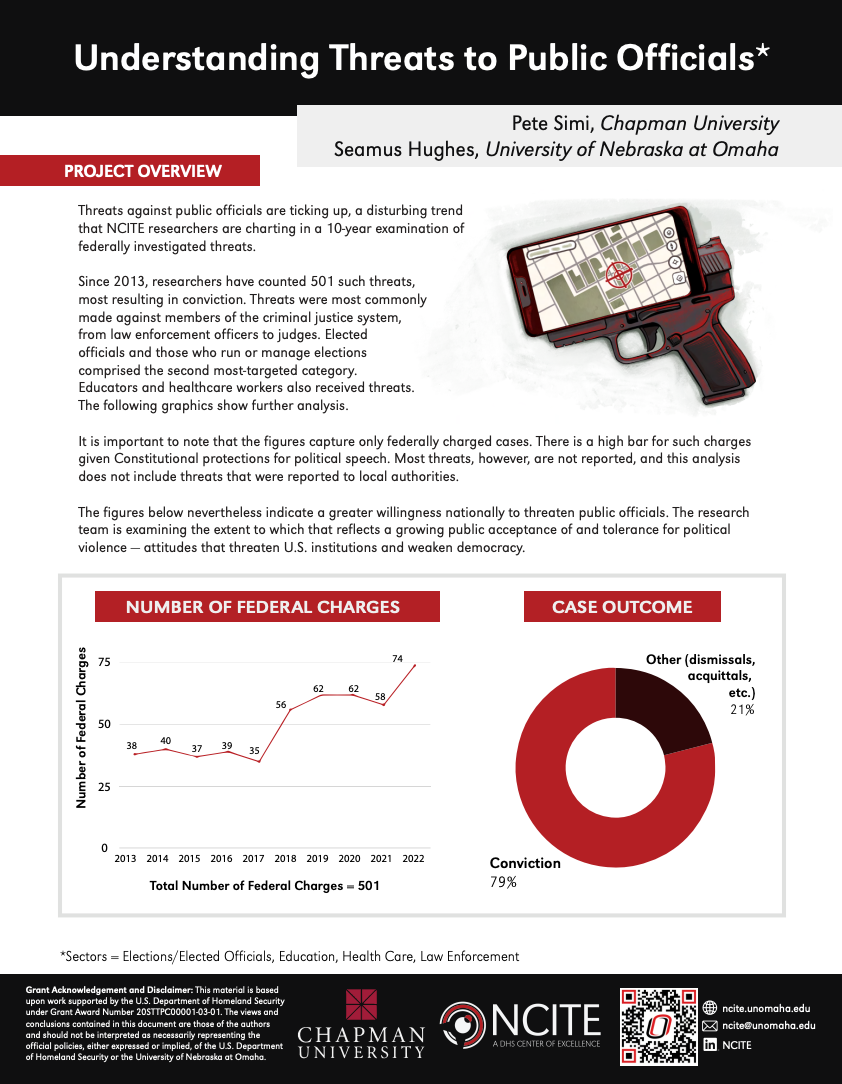 |
NCITE Report: Understanding Threats to Public Officials NCITE researchers Pete Simi and Seamus Hughes are charting the disturbing rise in cases involving violent threats against public officials, including, notably, election officials. This report offers a snapshot of that trend, charted over 10 years. Check out the full report. |
Official Statements
Sept. 18: Read a joint statement from the Office of the Director of National Intelligence (ODNI), the Federal Bureau of Investigation (FBI), and the Cybersecurity and Infrastructure Security Agency (CISA) on Iran's attempts to influence the 2024 election.
Other Resources
NCITE has compiled resources from the Cybersecurity and Infrastructure Security Agency (CISA), the National Conference of State Legislatures (NCSL), the Election Assistance Commission, and the Nebraska Secretary of State for more information on protecting election workers and infrastructure. For these and other resources for protecting the 2024 election, visit CISA's #Protect2024 website.
Physical Security
- Physical Security Checklist for Polling Locations: This checklist from CISA addresses factors such as identifying people responsible for security, reporting suspicious behavior, and more.
- Physical Security of Voting Locations and Election Security: This general guide for election officials provides resources and action items for securing election operations.
- Ballot Drop Box Resource Document: This document discusses important considerations for administering ballot drop boxes.
Digital Security
- Protecting Against Malicious Influence Operations: Foreign influence operations may try to undermine faith in U.S. elections. Ways to mitigate this threat include:
- Protecting Your Website: CISA has compiled resources to understand and combat cyberattacks to election websites, such as:
- Denial-of-Service (DoS) attacks, which occurs when users can't access parts of a network because of high traffic.
- Distributed Denial of Service (DDos), which occurs when high traffic is the result of machines operating together with the goal of disrupting a network.
- Website spoofing, which occurs when malicious actors create a similar domain to a website with the goal of misleading users and collecting emails, usernames, and passwords.
- Protecting Your Network: Network infrastructure is critical infrastructure. The following links can help election officials navigate:
Personnel Security
- Protect Yourself and Staff: Protecting the individuals that make our elections possible is vitally important. Below, find links to resources on:
- Protect Your Office: Election offices have been targeted with various types of attacks in recent years. Below are resources on:
- Protect Against Insider Threats: An insider threat is an individual within an organization that uses their access to do harm to the organization. Learn more in this training video.
Election Assistance Commission Incident Response Checklist
- This guide from the U.S. Election Assistance Commission outlines a list of key actions election officials should take in advance of Election Day.
Nebraska Election Security
- The Nebraska Secretary of State has published a website that thoroughly details actions the office is taking to secure Nebraska's 2024 election. These include:
- Using federally certified election equipment
- Using paper ballots
- Holding mock elections in which county election officials test the process of tabulating and uploading results
State Laws Protecting Election Officials and Staff
- Several states have passed legislation in recent years providing explicit protection for election officials, staff, and poll workers. You can read the details of these laws on the National Conference of State Legislatures (NCSL) website.